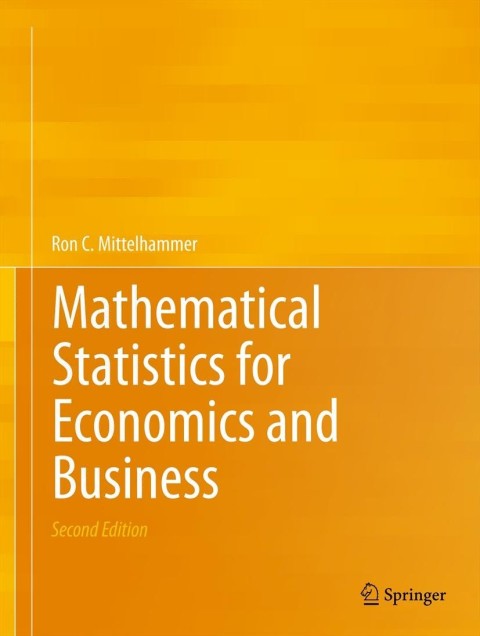Two economics professors are arguing about the appropriate estimator to use in estimating the mean of the
Question:
Two economics professors are arguing about the appropriate estimator to use in estimating the mean of the population distribution of incoming freshmen's I.Q.'s. The estimators will be based on a random sample from the population distribution. One professor suggests that they simply calculate the sample mean I.Q., \(\bar{x}_{n}\), and use it as an estimate of the mean of the population distribution. The other prefers to use an estimator of the form \(t(\mathbf{X})=\sum_{i=1}^{n} X_{i} /(n+k)\), where \(n\) is the random sample size and \(k\) is some positive integer, and she argues that her estimator has less variance than the sample mean and that for an appropriate choice of \(k\), her estimator would be superior on the basis of MSE.
a. We know that \(\bar{X}\) is unbiased, asymptotically unbiased, BLUE, and consistent for estimating the mean of the population distribution. Which of these properties apply to the alternative estimator?
b. Define asymptotic distributions for both estimators. On the basis of their asymptotic distributions, do you favor one estimator over the other?
c. Define the MSEs of the estimators. Is there any validity to the statement that "for an appropriate choice of \(k^{\prime \prime} t(\mathbf{X})\) will be superior to \(\bar{X}\) in terms of MSE? Explain.
d. Can you foresee any practical problems in using \(t(\mathbf{X})\) to generate estimates of the population mean?
Step by Step Answer:

Mathematical Statistics For Economics And Business
ISBN: 9781461450221
2nd Edition
Authors: Ron C.Mittelhammer





